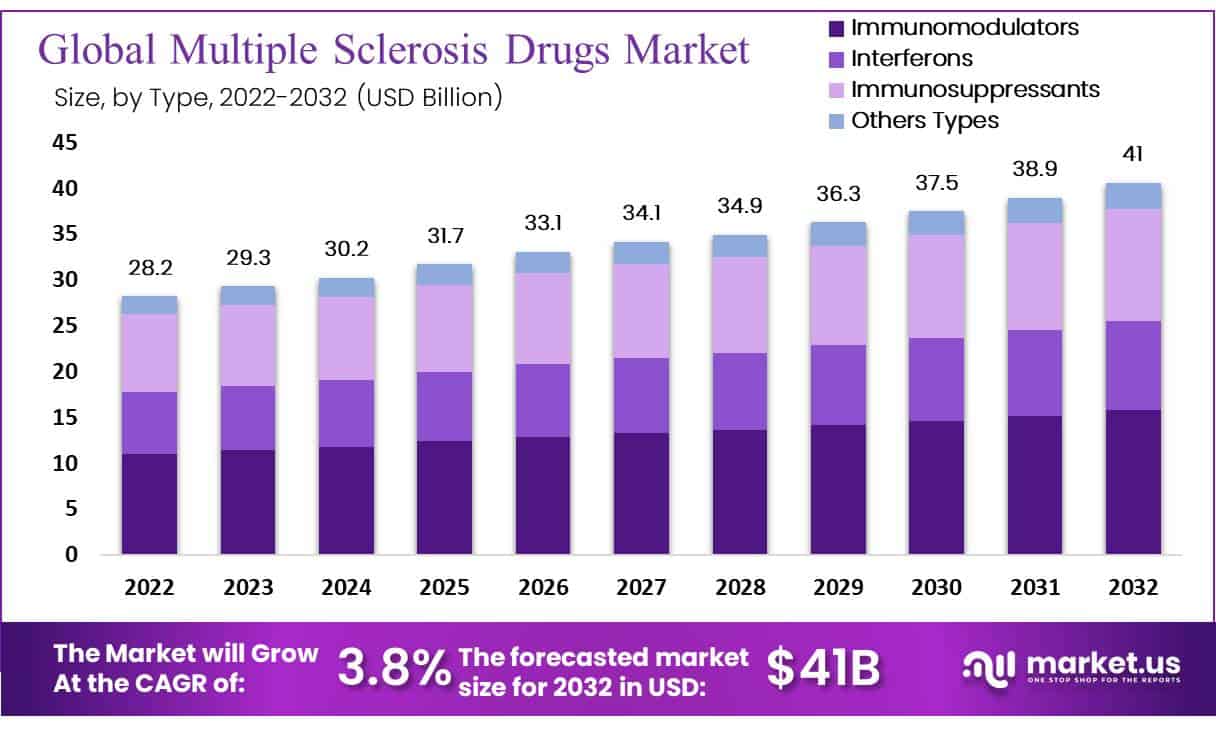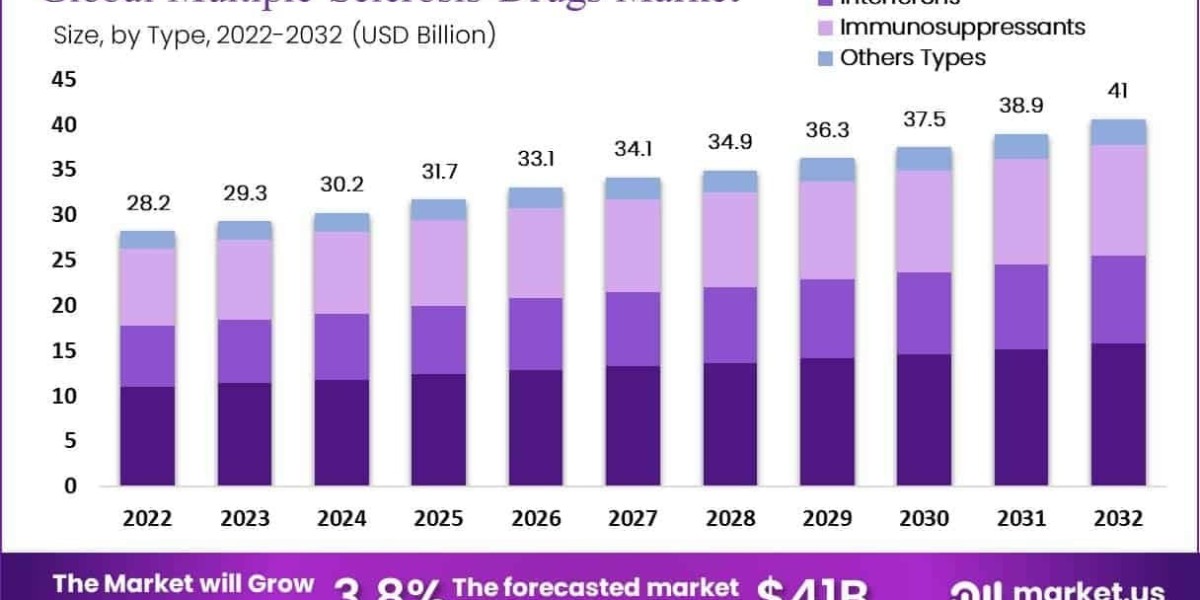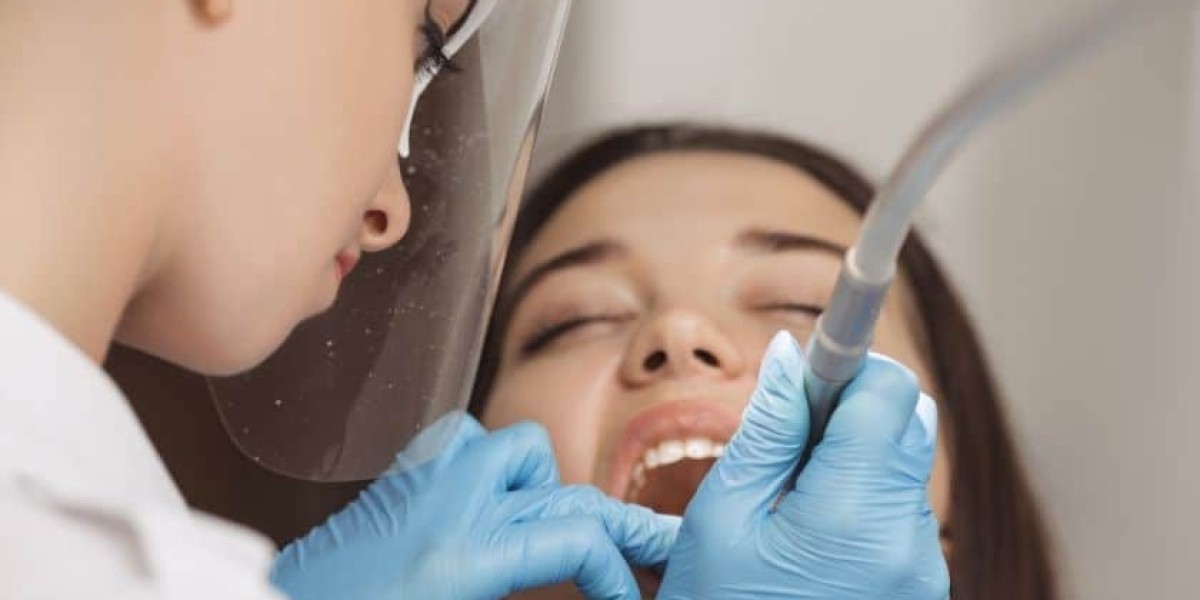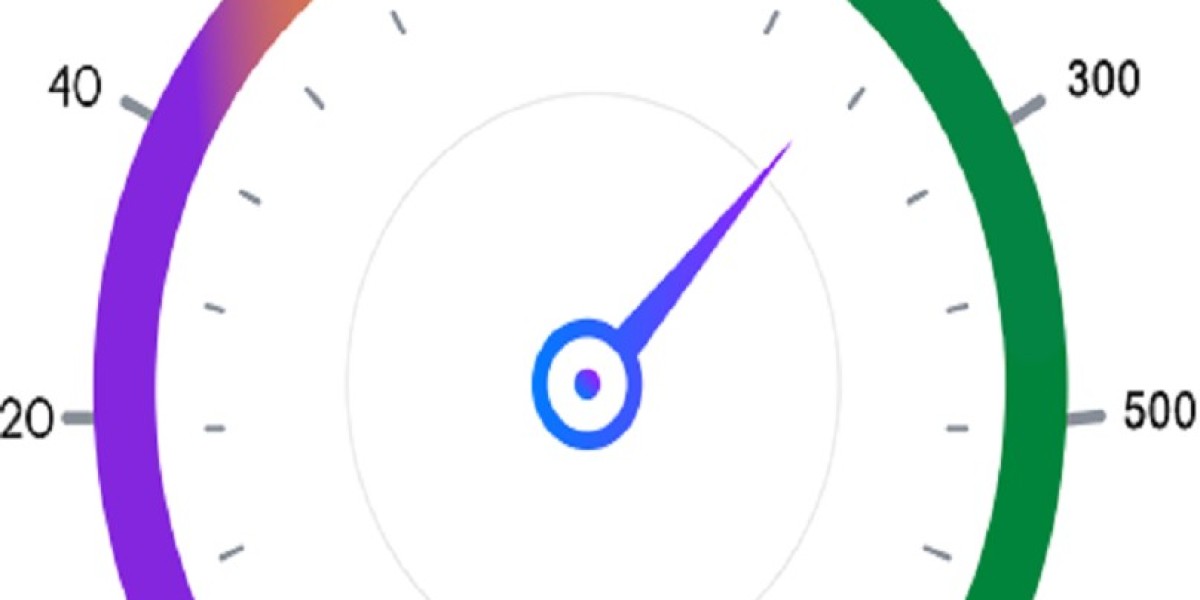The Global Multiple Sclerosis Drugs Market size is expected to be worth around USD 41 Billion by 2032 from USD 28.2 Billion in 2022, growing at a CAGR of 3.8% during the forecast period from 2022 to 2032.
In 2025, the Multiple Sclerosis Drugs Market is turning a new corner with the first wave of neuroprotective agents and treatments for progressive MS—a category historically underserved. Recent clinical data shows that combination regimens pairing standard anti-inflammatory drugs with neuroprotective molecules slow disability accumulation.
With an estimated 30% of MS patients in progressive stages, treating irreversible symptoms is becoming a strategic priority. Drug developers are also exploring biomarkers to identify early progression and respond with targeted therapy. Efforts to improve treatment in advanced MS are likely to reshape patient care pathways, positioning the market for a new era of research and clinical success.
Click here for more information: https://market.us/report/multiple-sclerosis-drugs-market/
Emerging Trends
- Combination anti-inflammatory + neuroprotective regimens designed to prevent axonal loss.
- Progressive MS-focused trials targeting secondary and primary progressive forms of the disease.
- Biomarker-guided therapy: Tests for neurofilament light chain and imaging changes allow earlier intervention.
- Regulatory support models: Agencies are offering fast-track pathways for drugs treating progressive MS, closing regulatory gaps.
Use Cases
- A multi-site trial studies a dual-drug regimen in progressive MS, showing slowed disability by half over 24 months.
- Neurologists use blood-based neurofilament tests to escalate therapy for early progression cases.
- A patient support program offers home physical therapy alongside neuroprotective drugs, enhancing recovery.
- A digital health startup integrates MRI data and biomarkers into an app to predict progression and guide treatment decisions.








